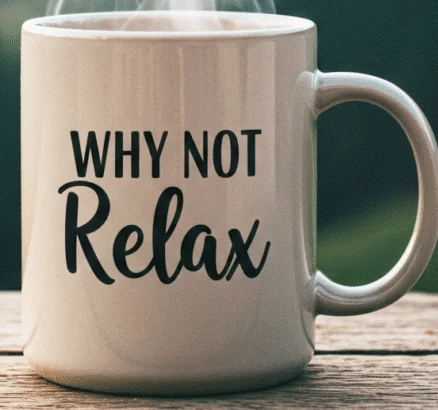Have you ever felt like you’re carrying the weight of the world… all by yourself?
Maybe it’s the quiet afternoons that used to feel peaceful but now feel a little too quiet.
Or maybe it’s that sinking feeling when the phone doesn’t ring and the house feels too big for just you.
You’re not alone — and no, that’s not just something people say. In 2025, a growing number of programs are being designed just for older adults who might be feeling lonely, anxious, overwhelmed, or even just… blah.
Yes, blah is a real feeling — we’ve all been there.
The good news? There’s help. Not the scary, complicated kind. But the kind that feels like a warm cup of tea on a chilly day. Group therapy for seniors isn’t about lying on a couch in a dark office and digging up your entire life. It’s about sharing stories, finding common ground, even laughing at the silly stuff. It’s about connection, healing, and remembering that your voice still matters — maybe more than ever.
Whether you’re feeling down, grieving a loss, adjusting to a new phase of life, or just craving connection… these programs are here to support you, not fix you.
And the best part? You don’t have to do it alone.
Let’s take a gentle stroll — no rushing here — into the world of group support programs that are helping older adults like you thrive, not just survive 💙 You deserve it.
Table of Contents
What Is Group Therapy for Seniors?
If you’re imagining a group therapy session as a quiet room where everyone stares at the floor while sharing their deepest secrets, think again! Group therapy for seniors is much more than that. It’s a warm, welcoming space where older adults come together to talk, listen, and support each other through life’s ups and downs — almost like a friendly neighborhood chat, but with a professional guide.
Many seniors face challenges like loneliness, anxiety, depression, or grief — and these feelings are completely normal and understandable. Group therapy offers a chance to connect with others who truly get what you’re going through. Instead of feeling alone in your struggles, you find a community that understands and cares.
Sessions usually involve a trained therapist who gently guides conversations on important topics like managing stress, coping with loss, staying active, or simply sharing stories and laughter. It’s not about being “fixed” or judged — it’s about healing together, at your own pace. Plus, the camaraderie and humor that often develop in these groups can make a huge difference in brightening your day.
Group therapy also helps seniors build social skills, find motivation, and create new friendships, which are vital for mental and emotional well-being. It’s a safe place where you can be yourself and feel supported, no matter what you’re facing.
If you want to dive deeper into how group therapy can benefit seniors, the National Alliance on Mental Illness (NAMI) offers excellent resources on psychotherapy, group support, and mental health treatments. It’s a great place to start learning and feel empowered to take the next step.
So, if you or someone you love has been feeling a bit down or disconnected, group therapy might just be the gentle boost you need — a chance to connect, heal, and maybe even share a laugh or two along the way.

Real-Life Example: Jacksonville’s ‘Senior Life Solutions’
One shining example of group therapy designed especially for seniors is the Senior Life Solutions program at Memorial Hospital in Jacksonville, Florida. Started in 2025, this program offers seniors a friendly place to find support through up to four group therapy sessions per week.
The program focuses not just on mental health but also on nutrition, exercise, grief counseling, and building social connections — a full package to help seniors thrive. And the best part? It’s covered by Medicare, so it’s affordable for many.
Participants join groups led by licensed therapists who help guide discussions, teach coping skills, and create a safe environment for everyone. The sessions are designed to be interactive and encouraging, not clinical or intimidating.
This program is a wonderful example of how healthcare is evolving to meet the unique needs of older adults. If you want to explore more about this program, you can visit Memorial Hospital’s official page for Senior Life Solutions here.
Feeling supported, connected, and heard — that’s the heart of group therapy. And as 2025 shows us, it’s an option more seniors can take advantage of to brighten their days and boost their wellbeing.
Why Group Therapy Works for Older Adults
One of the best things about group therapy is how it helps break down the walls of loneliness and isolation that many seniors face. Imagine being in a room full of people who really get what you’re feeling — who’ve walked similar paths and understand your struggles. That shared understanding makes it much easier to open up, express yourself, and be heard.
This sense of shared experience builds deep trust and connection. When you know you belong to a group that supports you, it can be incredibly healing. Studies even show that strong social support reduces depression and anxiety, boosts your mood, and can lead to better physical health — like improved sleep and lower blood pressure.
Another great benefit is hearing different perspectives and coping strategies from your peers. It’s like having a personal cheerleading squad, offering advice, encouragement, and fresh ideas for handling life’s ups and downs. Learning how others face similar challenges can inspire you and give you new tools to try.
And don’t worry — it’s not just a free-for-all chat session. Therapists guide these groups carefully to make sure everyone feels safe, respected, and heard. They help the group focus on meaningful, supportive conversations that teach useful skills for managing stress, grief, or health issues. So, it’s about real connection and growth, not endless talking.
Plus, group therapy creates a sense of routine and purpose. Knowing you have a weekly session where you can come, share, and listen helps build structure in your life — something that many seniors find comforting and stabilizing. It also encourages socializing, which can boost brain health and keep feelings of loneliness at bay.
Ultimately, group therapy offers a unique combination of emotional support, practical advice, and community that’s hard to find elsewhere. It’s a safe space where older adults can thrive by connecting with others who truly understand them — because sometimes, the best medicine is simply knowing you’re not alone.
Is This Right for You or a Loved One?
You might be wondering, “Is group therapy something I should try?” or “Would it help my parent or grandparent?” That’s a great question, and the answer really depends on the unique needs, personality, and comfort level of each individual. Just like picking a favorite ice cream flavor, one size doesn’t fit all! 🍦
Here are some signs that group therapy might be a good fit for you or someone you care about:
- 🤝 Feeling lonely or isolated, especially after major life changes like retirement or moving to a new place.
- 😟 Experiencing anxiety or persistent worries that seem hard to shake off.
- 💔 Coping with the loss of a loved one, whether it’s a spouse, friend, or family member.
- ⚕️ Facing health challenges that impact your mood or outlook on life.
- 😊 Wanting to meet new people and share stories in a supportive environment.
On the flip side, group therapy might not be the best choice if:
- 🗣️ You or your loved one prefer talking one-on-one rather than in a group setting.
- 😶 Feel uncomfortable sharing personal feelings in front of others.
- ⚖️ There are specific medical or mental health issues that need focused individual attention.
Remember, whether it’s group therapy or individual counseling, the most important thing is finding a support system that feels right. Don’t hesitate to discuss your options with a trusted healthcare professional — they can guide you through what might work best based on your unique situation.
Programs like Senior Life Solutions in Jacksonville often offer free initial consultations or screenings. These sessions let you explore group therapy in a no-pressure environment to see if it feels like a good fit.
Taking that first step can be intimidating — it’s like walking into a new dance class when you don’t know the moves yet. But trust me, once you get started, you might find yourself tapping along and enjoying the rhythm more than you expected!
So, if you’re curious, why not give it a try? Your future self might just thank you for the courage to connect, share, and grow.
How to Find a Program Near You
Looking for a group therapy program that fits your needs can feel a little overwhelming at first. It’s like walking into a huge library where every book promises something great, but you’re not quite sure which one is right for you. Don’t worry — help is just around the corner, and there are plenty of resources designed to guide you through the process and find the perfect fit close to home.
A smart first step is to reach out to local hospitals, community centers, or senior centers. Many of these places offer mental health programs tailored specifically for older adults. These programs often focus on providing support that matches the unique challenges seniors face — whether it’s coping with loneliness, managing stress, or building social connections.
And here’s a great bonus: many of these programs are covered by Medicare or other insurance plans. That means you don’t have to break the bank to get the help you deserve. It’s always a good idea to check with your insurance provider about what mental health services are included in your plan, so you can make informed decisions without surprises.

If you want to widen your search, the National Alliance on Mental Illness (NAMI) Find Support page is an excellent tool. This website offers a comprehensive directory of mental health resources nationwide, including group therapy programs tailored for seniors. You can filter your search by location, type of service, and even by specific needs, making it a breeze to find options that suit your situation.
Sometimes, the hardest part is just making that first phone call or visit. Don’t hesitate to reach out and ask questions — whether it’s about schedules, group sizes, or what to expect in a session. Most programs are happy to provide this information and will welcome your interest warmly.
Remember, taking that first step is a sign of courage and strength. It’s like trying a new hobby for the first time — a bit scary, but also full of potential. Who knows? That call might lead you to a community where you feel truly understood and supported.
So, take a deep breath, and start exploring. The right group therapy program is out there, ready to help you or your loved one thrive and enjoy life to the fullest.
Action Checklist: Let’s Get Started
Ready to explore group therapy? That’s fantastic! Taking the first step is often the hardest, but you’re already on your way. To make the journey smoother, here’s a detailed checklist that will help you get started on the right foot and keep moving forward with confidence.
- ✅ Talk with your healthcare provider about your interest in group therapy. They can offer guidance, recommend programs, and help tailor your options to your specific health needs.
- ✅ Research local programs through hospitals, senior centers, community centers, and online resources like the National Alliance on Mental Illness (NAMI). Explore what’s available nearby and see which programs resonate with you.
- ✅ Check your Medicare or insurance coverage for mental health services. Understanding what’s covered can ease worries about costs and help you choose programs that fit your budget.
- ✅ Attend an introductory session or consultation if available. Many programs offer a free or low-cost first meeting so you can get a feel for the group, ask questions, and decide if it’s a good fit.
- ✅ Be open to sharing and connecting — but remember, it’s perfectly okay to take it one step at a time. You don’t have to jump in all at once. Building trust and comfort is a process, and every little step counts.
Additionally, here are a few extra tips to keep in mind as you embark on this journey:
- 📝 Keep a journal or notes about your experiences and feelings after sessions. This can help track your progress and highlight what’s working well.
- 📞 Don’t hesitate to contact program coordinators if you have questions or concerns — they’re there to support you!
- 🤗 Try to maintain an open mind; every group and therapist is different, and finding the right match might take a couple of tries.
- 🧘♂️ Practice self-care outside of sessions with activities you enjoy — whether it’s a walk, a hobby, or simply resting well.
Remember, reaching out for support is one of the bravest and most positive steps you can take toward improving your mental health and overall quality of life. You’re not alone — help is just around the corner, and a community of understanding and encouragement is waiting to welcome you with open arms.
*You Might Also Like – New $6,000 Tax Break for Seniors? What Trump’s 2025 Bill Really Means for You
